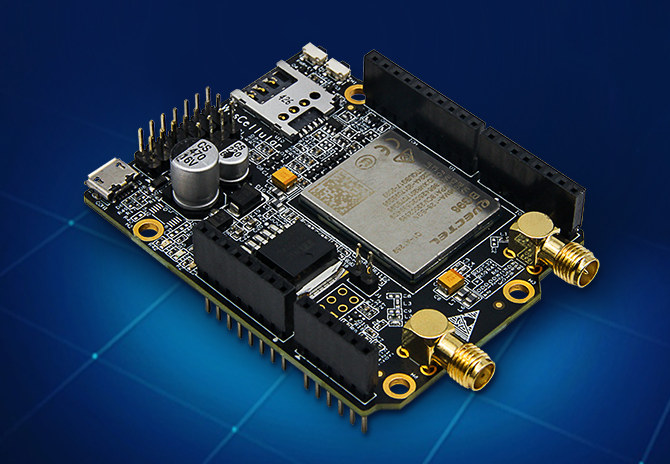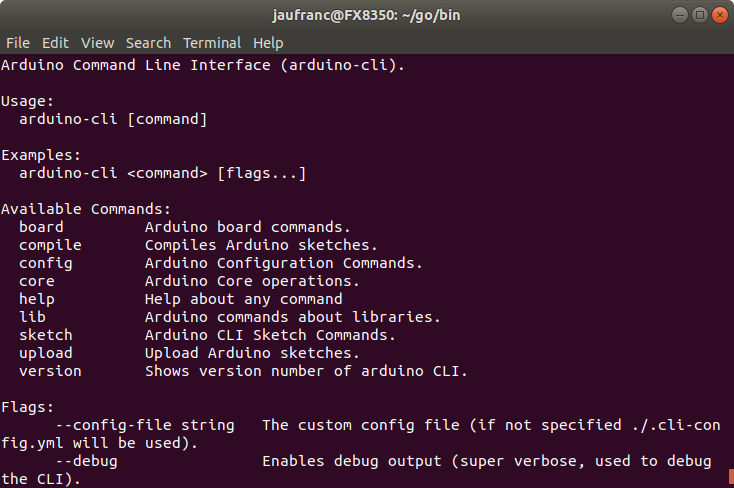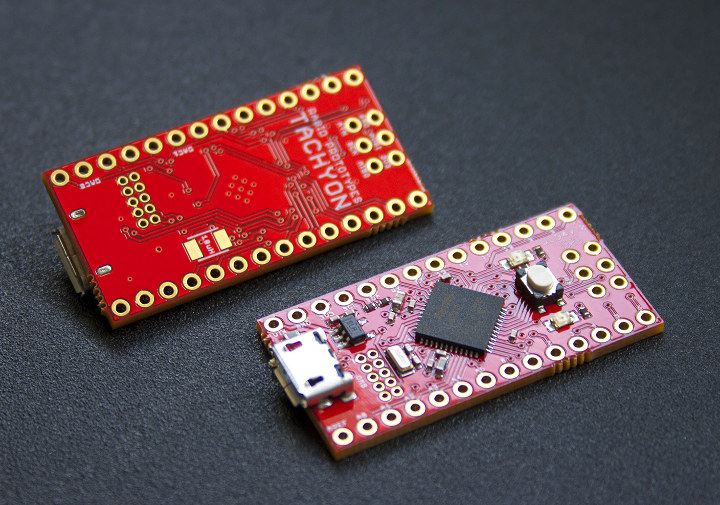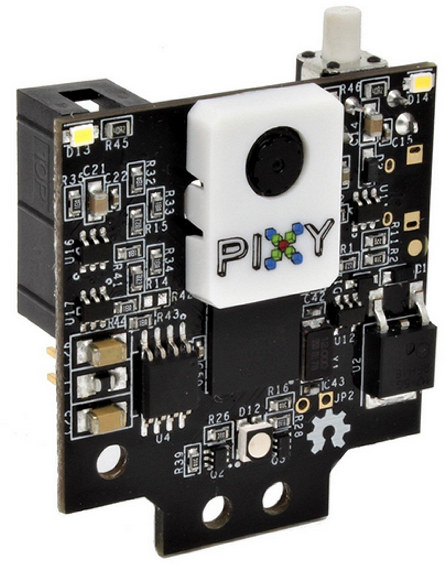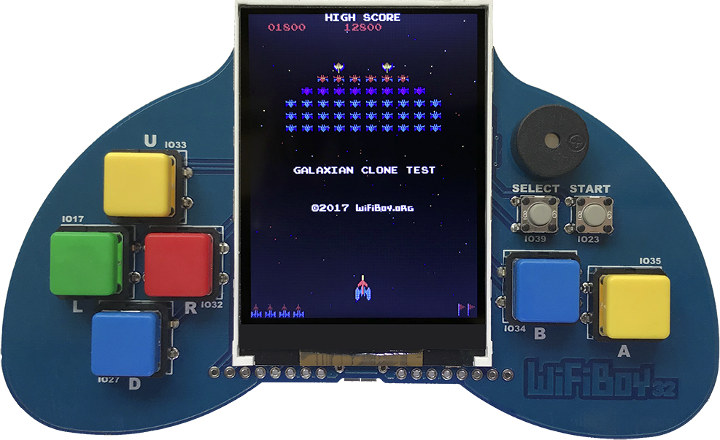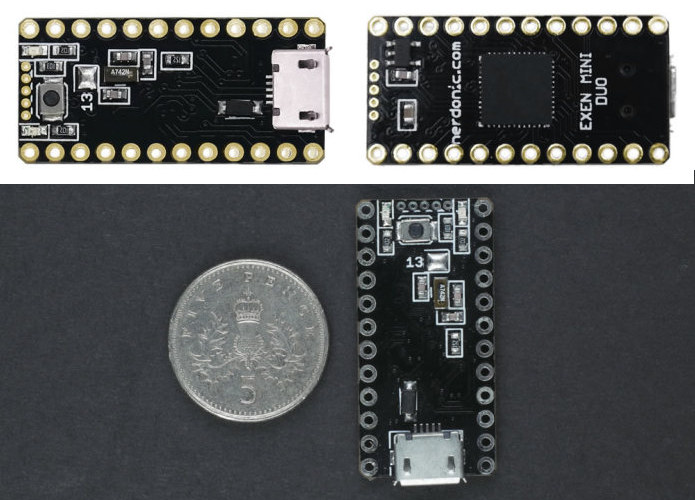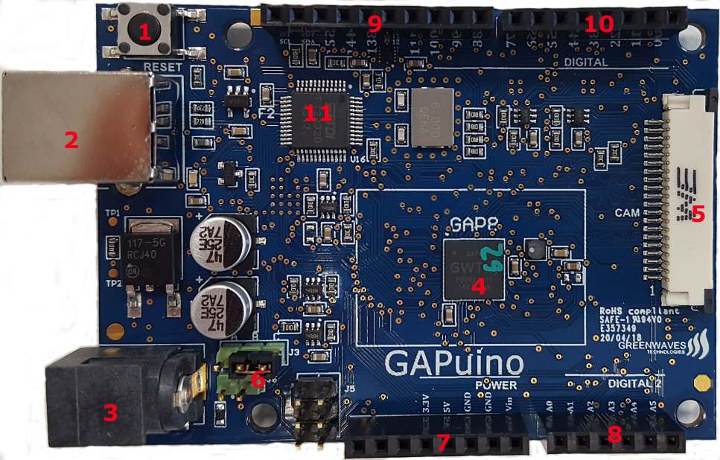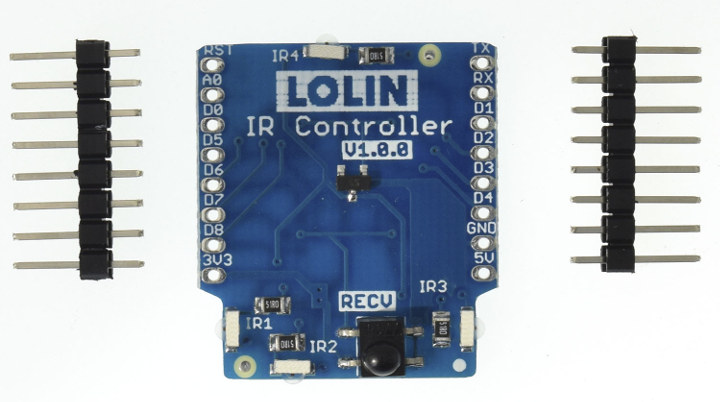RAK Wireless introduced WisLTE Arduino shield last year based on Quectel BG96 module with support for NB-IoT (Cat NB1), eMTC (Cat M1), and 2G fallback as well as GPS location. WisLTE worked globally, but the company did not go through the certification process, at least not for the global market, meaning the shield could not be used in commercial applications. That’s why Rak Wireless has been working on WisCellular shield, also based on Quectel BG96, but this time with global certification. WisCellular specifications: Cellular Module – Quectel BG96 (based on Qualcomm MDM9206) Cellular Network 2G/GSM (GPRS/EPGRS) 4G/LTE-M (Cat M1) NB-IoT (Cat NB1) Global Bands EDGE/EGPRS: 850/900/1800/1900MHz LTE FDD: B1/B2/B3/B4/B5/B8/B12/B13/B18/B19/B20/B26/B28 LTE TDD: B39 (For Cat M1 Only) Data Rate Cat M1: Max. 300Kbps (DL), Max. 375Kbps (UL) Cat NB1: Max. 32Kbps (DL), Max. 70Kbps (UL) EDGE: Max. 296Kbps (DL), Max. 236.8Kbps (UL) GPRS: Max. 107Kbps (DL), Max. 85.6Kbps (UL) Voice – […]
Arduino Releases Command Line Interface (CLI) Alpha Preview
So far, AFAIK the only official ways to program Arduino boards were through the Arduino IDE program, or the cloud-based Arduino Create which works in your web browser and does not require any installation on your computer. While graphical interfaces are nice and user-friendly, many of us are more productive while working using the command line, especially if commands can be scripted. So Arduino decided to work on a command line interface (CLI) for professional users, and have just announced a preview release. arduino-cli works in Windows, Linux, and Mac OS, and allows you install libraries, boards, and cores (e.g. esp32 Arduino core), compile the code, and upload the binary to the target board. If you want to get started quickly, you can download the binary “alpha” releases in the announcement board, but instead I opted to build the client myself as explained on Github. Everything below is done in […]
Tachyon Arduino Zero Compatible Board Features Microchip SAMD51 Arm MCU @ 120 MHz (Crowdfunding)
Most Arm based Arduino compatible boards come with a Microchip SAMD21 Arm Cortex-M0+ MCU clocked at up to 48 MHz since this is the microcontroller found in the official Arduino Zero and MKRZero boards and comes with proper support in the Arduino IDE. But last year, Microchip introduced SAMD5x Arm Cortex-M4 microcontroller family which offers devices that are pin-to-pin compatible with SAMA2x microcontrollers but with better performance, and more memory and storage. So the guys at Rabid Prototypes decided to make Tachyon, a tiny Arduino Zero compatible board based on SAMD51 MCU for people wanting more oomph out of their Arduino board. Tachyon board specifications: MCU – Microchip ATSAMD51G18A Arm Cortex M4F @ 120 MHz with 256KB flash, 128 KB RAM I/Os Digital I/O pins – 14x w/ 12x PWM Analog input pins – 6x 12-bit ADC channels Analog output pins – 2x 10-bit DACs Operating voltage – 3.3V I/O […]
PIXY2 Computer Vision Camera Works with Arduino, Raspberry Pi, and Other Boards
Cameras may be used to take holiday photos, but when integrated into robotics projects there may purpose is usually to detect objects and/or patterns. We’ve previously covered specialized computer vision camera such as the Linux based JeVois camera powered by Allwinner A33 processor, HICAT.Livera machine vision board, or STMicro STM32F7 Arm Cortex M7 powered OpenMV Cam M7 open source computer vision board. Another popular option is PixyCam PIXY camera that was first launched via a Kickstarter campaign in 2013. The company has recently introduced an updated version, aptly named PIXY2, which can still detect objects – just faster at 60 fps-, and also includes new algorithms to detect and track lines or barcodes. PIXY2 camera specifications: MCU – NXP LPC4330 dual core Arm Cortex M4/M0 @ up to 204 MHz with 264KB RAM, 2MB flash Image sensor – OnSemi (previously Aptina) MT9M114 1296×976 resolution with integrated image flow processor Lens […]
WiFiBoy32 is an ESP32 Portable Game Console and IoT Devkit
I’ve noticed that ever since Hardkernel launched their ODROID-GO “10th anniversary” portable game console based on ESP32 processor, most of the talk on IRC and social media is about this new toy, and people almost seem to have forgotten about the company’s Arm Linux boards 🙂 But recently, I’ve come across a somewhat similar ESP32 device called WiFiBoy32 that acts as both a portable game console and an IoT development kit. WiFIBoy32 specifications: Wireless module – ESP32-WROOM-32 wireless module with 802.11 b/g/n WiFi and Bluetooth 4.2 LE connectivity Display – 2.4″ 240×320 color SPI TFT LCD display Expansion – 2x 8-pin through holes with GPIOs, SPI, DAC, I2S,ADC, VP/VN, and power signals (3.3V, Vin, GND) Misc Top – 6x large gaming buttons, select and start push buttons, buzzer Bottom – PROG and RESET buttons, user LED USB – 1x micro USB port for power and programming (CP2102) Dimensions – 120 […]
Exen Proto Arduino Compatible Board is based on Microchip SAMD21 MCU (Crowdfunding)
Nerdonic launched Exen Mini last year as the world’s smallest 32-bit Arduino compatible board, and getting the smallest board possible is very good for some projects, but so not much for other as Exen Mini is limited to just 8 I/O pins. So the company made another larger board called Exen Proto based on the same Microchip SAMD21 Cortex M0+ microcontroller, but offering more I/Os. Exen Proto specifications with difference against Exen Mini highlighted in bold: MCU – Microchip SAMD21 Cortex M0+ MCU @ 48 MHz with 256KB flash, 32KB SRAM I/Os via 2x 12-pin 2.54mm pitch headers Up to 20x digital I/O Up to 19x PWM Up to 11x analog (ADC) up to 12-bit resolution 2x UART Up to 5x I2C 1x reset Limits – 3.3V, 7mA USB – 1x micro USB port Programming – Via micro USB port or SWD header Misc – Power LED, user LED, button […]
GAPUINO GAP8 is a $229 RISC-V MCU Developer Kit for A.I. Applications
GreenWaves GAP8 is a low power RISC-V “MCU class” processor with eight compute cores optimized for artificial intelligence applications, and its main selling point is the ability to do tasks like computer vision or audio processing at very low power, even good enough to run on batteries. When we first covered GAP8 RISC-V processor at the beginning of the year, the company also mentioned a development kit comprised of GAPDUINO Arduino compatible board, a sensor board, and a QVGA camera module to experiment with the solution. The board and development kit are now easier to purchase as the devkit is sold on SeeedStudio for $229. GAPuino board specifications: SoC – GAP8 IoT Application Processor with 8x RISC-V compute cores, 1x RISC-V fabric controller core delivering up to 200 MOPS at 1mW and >8 GOPS at a few tens of mW Memory / Storage – HyperBus combo DRAM/Flash with 512 Mbit […]
Build an ESP8266 IR Remote Control with LOLIN IR Controller Shield for D1 Mini Board
Infrared remote control are still widely with TVs, set-top boxes, air conditioners, and all other sort of appliances with the end result of having many remote control around the house. If you want to cut on the number of remote controls, there are several solutions: Get a smartphone with a Built-in IR transmitter like Xiaomi Mi A1. Add an IR transmitter to your smartphones’s headphone jack using ZazaRemote or USB type C port with ROCK USB type C IR transmitter. Get a WiFi IR blaster in order to control devices remotely, or maybe buy several try control any IR devices from anywhere DIY your own solution for more flexibility, for example using ANAVI Infrared pHAT and a Raspberry Pi board. The smartphone solutions (1 & 2) works as long as you are in the room, but the WiFI IR blaster allows you to control devices even if you are not […]


